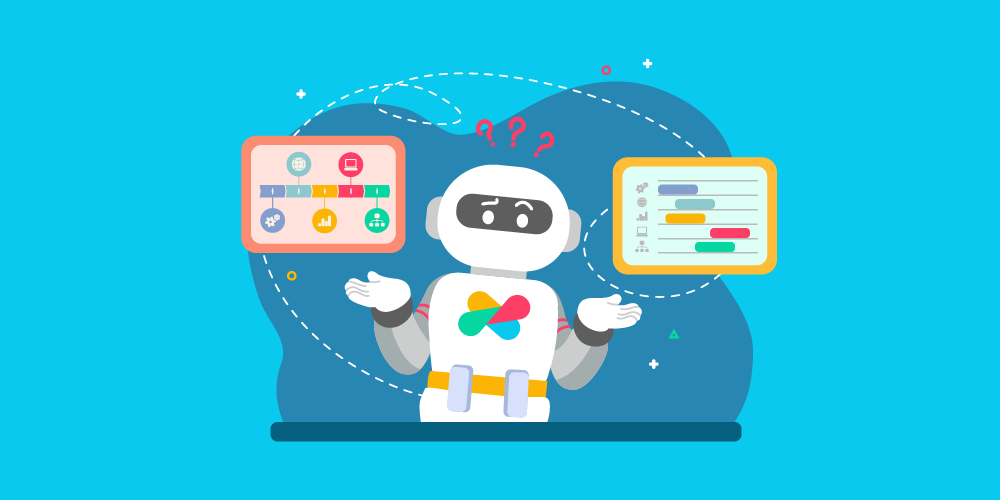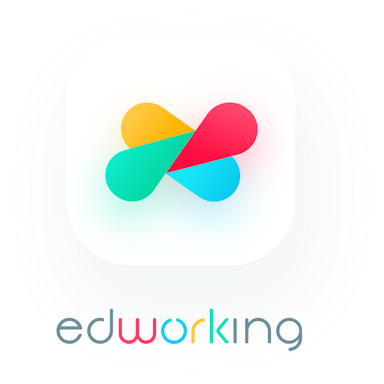What sets exceptional project leaders apart in today’s fast-paced, ever-evolving work environment? While technical expertise and strategic planning play a critical role, emotional intelligence (EI) often emerges as the secret sauce for sustained success. Think about it—how often do projects falter, not due to lack of skills or resources, but because of miscommunication, unresolved conflicts, or low team morale? This is where EI shines as a game-changer.

At its core, emotional intelligence in project leadership empowers leaders to navigate the complexities of human behavior. By understanding and managing their emotions—and those of their team members—leaders can foster stronger relationships, resolve conflicts effectively, and create an environment where innovation thrives. Research even shows that leaders with high EI often see better project outcomes, including higher productivity, improved collaboration, and increased team satisfaction.
This article explores how emotional intelligence transforms project leadership and provides actionable insights for leaders looking to leverage EI. From enhancing communication to building trust and resolving conflicts, we’ll uncover practical strategies to harness the full potential of EI and boost your team’s dynamics and success. Ready to dive in? Let’s explore how becoming an emotionally intelligent leader can elevate your projects to new heights.
 What is Emotional Intelligence?
What is Emotional Intelligence?
Emotional intelligence (EI) is often described as the ability to understand, manage, and influence emotions—both your own and those of others. Coined by psychologist Daniel Goleman, EI is the cornerstone of effective leadership, especially in environments where collaboration and adaptability are critical. It goes beyond IQ, focusing on the soft skills that help leaders connect with their teams, navigate challenges, and inspire performance.
Self-awareness
Self-awareness is the ability to recognize and understand your own emotions, strengths, weaknesses, and triggers. This awareness enables leaders to assess situations objectively and respond thoughtfully rather than reacting impulsively. For example, a self-aware leader who feels frustrated in a meeting can recognize this emotion and choose to stay composed instead of lashing out.
Self-regulation
Self-regulation is about controlling emotional impulses and staying adaptable in dynamic environments. It means pausing before reacting, staying calm under pressure, and maintaining a consistent approach even in challenging circumstances. Leaders with strong self-regulation create a stable and trustworthy atmosphere that fosters confidence within the team.
Motivation
Motivation within EI refers to an inner drive to achieve goals beyond external rewards. Emotionally intelligent leaders are often optimistic, persistent, and proactive in pursuing objectives, even when faced with setbacks. This passion for progress becomes contagious, inspiring team members to push boundaries and achieve collective success.
Empathy
Empathy is the ability to understand and share the feelings of others. For leaders, it means stepping into a team member's shoes to grasp their perspective, challenges, or needs. Empathetic leadership builds trust, strengthens connections, and shows team members that their voices are valued, leading to better collaboration.
Social skills
Social skills represent the ability to interact effectively with others. This includes clear communication, conflict resolution, relationship building, and teamwork. Leaders with excellent social skills are natural connectors, adept at fostering a collaborative environment where everyone feels heard and included.
By mastering these five components, leaders can elevate their emotional intelligence, paving the way for improved decision-making, stronger team dynamics, and more successful project outcomes. EI isn’t just a buzzword—it’s a vital skill set for navigating the complexities of modern leadership.
 The Role of Emotional Intelligence in Project Leadership
The Role of Emotional Intelligence in Project Leadership
In project leadership, success hinges on more than just timelines and deliverables—it’s also about how leaders engage with their teams. Emotional intelligence (EI) plays a transformative role in shaping communication, resolving conflicts, and fostering trust. Let’s explore how emotionally intelligent leaders create stronger, more cohesive teams.

Enhancing Communication
Effective communication is the backbone of any successful project, and emotionally intelligent leaders excel at making it open, transparent, and meaningful.
Empathetic Listening
Leaders with high EI actively listen to their team members. They focus not just on the words being said but also on the underlying emotions and concerns. For instance, during a team check-in, an emotionally intelligent leader might notice a hesitant tone and address it with sensitivity, ensuring that everyone feels heard and valued.
Providing Constructive Feedback
Feedback is critical for growth, but the way it’s delivered can make or break morale. Emotionally intelligent leaders frame feedback in a way that motivates rather than discourages. They balance honesty with encouragement, using phrases like, “This part could be improved, and here’s how I can support you.”
By fostering transparent communication, these leaders help prevent misunderstandings, build stronger connections, and create a safe space for collaboration.
Conflict Resolution
In any team setting, conflicts are inevitable—but it’s how they’re managed that defines the outcome. Emotional intelligence equips leaders with the tools to address disagreements constructively.
Why EI Matters in Conflict Management
Leaders who can identify and regulate their emotions are less likely to react impulsively during heated moments. They approach conflicts with a calm demeanor, setting an example for the team.
Techniques for De-escalating Tensions
- Acknowledging Perspectives: Emotionally intelligent leaders ensure that all parties feel understood by summarizing and validating their viewpoints before proposing solutions.
- Finding Common Ground: Instead of focusing on differences, these leaders steer conversations toward shared goals, reframing the conflict as an opportunity for growth.
By resolving conflicts constructively, leaders strengthen team cohesion and minimize disruptions to project progress.
Building Trust and Collaboration
Trust is the glue that holds teams together, and emotionally intelligent leaders understand how to nurture it.
Creating a Trustworthy Environment
Leaders with high EI are consistent, approachable, and authentic. They admit mistakes, show vulnerability when appropriate, and maintain integrity in their actions. These qualities foster a sense of psychological safety where team members feel comfortable sharing ideas and taking risks.
Encouraging Teamwork through Authentic Leadership
Emotionally intelligent leaders inspire collaboration by valuing diverse perspectives and recognizing individual contributions. For example, they may celebrate small wins during meetings or acknowledge team members’ unique strengths in solving challenges.
Through trust and collaboration, EI-driven leaders create an atmosphere where team members thrive, leading to better project outcomes and a more fulfilling work environment.
When emotional intelligence takes center stage in project leadership, teams are empowered to communicate openly, resolve conflicts effectively, and work together with confidence and trust. These elements are the foundation for achieving extraordinary results.
 Emotional Intelligence and Team Dynamics
Emotional Intelligence and Team Dynamics
Strong team dynamics are the lifeblood of successful projects, and emotional intelligence (EI) is the catalyst that brings them to life. Leaders with high EI create environments where motivation, relationships, and morale flourish. Here’s how they shape team dynamics to inspire success.

Impact on Motivation
Motivated teams are more productive, creative, and resilient—and emotionally intelligent leaders are experts at sparking this drive.
How Leaders with High EI Inspire Teams
These leaders understand that one-size-fits-all motivation doesn’t work. Instead, they tune into their team’s emotions and unique drivers, using encouragement tailored to each individual. For instance, some team members may thrive on public recognition, while others might prefer private acknowledgment of their efforts.
The Role of Personalized Motivation
Emotionally intelligent leaders take the time to understand each team member’s goals, strengths, and challenges. By aligning tasks with individual aspirations, they create a sense of purpose that boosts morale. A leader might say, “I noticed your attention to detail in last week’s report—would you like to take the lead on quality checks for this project?”
This personalized approach not only inspires performance but also fosters a deeper sense of connection between leaders and their teams.
Strengthening Relationships
Strong interpersonal bonds are the foundation of trust and collaboration. Leaders with high EI cultivate these connections deliberately and consistently.
Practical Examples of Building Bonds
Emotionally intelligent leaders show genuine interest in their team members’ well-being. Whether it’s remembering a birthday, checking in during a tough time, or celebrating small wins, these gestures go a long way. For example, a leader might say, “I know you’ve been juggling a lot lately—how can I support you this week?”
Reducing Turnover and Increasing Satisfaction
When team members feel valued and supported, they’re more likely to stay engaged and committed. Studies show that employees are far less likely to leave a job where they feel emotionally connected to their leader and peers.
By strengthening relationships, EI-driven leaders build teams that are not only cohesive but also highly resilient.
Fostering a Positive Work Environment
Emotionally intelligent leaders know that team culture starts with them. By leading with positivity and adaptability, they create environments where teams can thrive.
Why Leading by Example Matters
Leaders set the tone for the workplace. An emotionally intelligent leader who remains calm under pressure, treats others with respect, and handles setbacks constructively demonstrates the behaviors they wish to see in their team. This creates a ripple effect of positivity.
Techniques to Nurture Resilience and Adaptability
- Open Communication: Encourage regular feedback loops where team members feel safe sharing their thoughts.
- Celebrating Diversity: Recognize and leverage the unique strengths of each team member.
- Practicing Gratitude: Regularly express appreciation for the team’s hard work, whether through a quick thank-you email or a shoutout during a meeting.
When leaders use emotional intelligence to foster a positive work environment, they create teams that are not only productive but also deeply satisfied and motivated.
By understanding what drives their teams, building strong relationships, and cultivating an empowering workplace culture, emotionally intelligent leaders unlock the full potential of their teams, leading to extraordinary outcomes.
 The Role of Edworking in Emotionally Intelligent Leadership
The Role of Edworking in Emotionally Intelligent Leadership
In today’s fast-paced digital work environment, emotionally intelligent leadership is more critical than ever. With remote and hybrid teams becoming the norm, leaders need tools that enhance collaboration, build trust, and facilitate clear communication. This is where Edworking, an all-in-one remote work and AI-powered collaboration platform, plays a pivotal role.

How Edworking’s Tools Support Collaboration and Team Engagement
Emotionally intelligent leaders prioritize transparent communication, active listening, and team cohesion. Edworking provides an ecosystem that fosters these qualities through:
- AI-powered Chat – Seamlessly communicate with your team, keeping discussions organized within tasks and projects. This ensures clarity and reduces misunderstandings.
- Video Calls – Integrated video conferencing fosters face-to-face interactions, helping leaders connect with their teams on a personal level.
- Real-time Task Tracking – Keeps teams aligned with shared goals, allowing for immediate feedback and better project visibility.
- Workspaces for Collaboration – Enables structured discussions, file sharing, and team brainstorming in one centralized platform.
By leveraging these features, leaders maintain emotional connections with remote teams, ensuring engagement and motivation even when working from different locationsEdworking Review.
AI Tools That Support Emotional Intelligence
Edworking’s AI-driven productivity tools not only streamline workflows but also empower leaders to communicate with clarity, resolve conflicts effectively, and make informed decisions. Here’s how:
AI Writing Tools for Clear and Empathetic Communication
- AI Blog and Writing Assistants help craft well-structured, empathetic, and professional messages.
- Paraphrasing and Tone Adjustment Tools ensure messages are clear and aligned with the team’s emotions.
- AI-generated Meeting Summaries allow leaders to focus on team interactions while the system handles documentation.
AI Search & Chatbot for Improved Decision-Making
- Smart AI Search quickly retrieves relevant information from past discussions, documents, and project histories.
- AI Chatbot Assistance provides instant responses and context-driven insights, helping leaders make better data-informed decisionsAI Creative and Product….
Edworking’s Integrated Tools for Smoother Workflow Management
- Task and File Management keeps projects structured, reducing stress and enhancing efficiency.
- Automated Notifications and Updates ensure real-time visibility, so no task is overlooked.
- Team Performance Analytics help leaders recognize team strengths and areas needing improvement.
By integrating AI-powered insights, real-time collaboration, and seamless communication, Edworking elevates emotionally intelligent leadership and helps teams thrive in a digital-first world.
 Conclusion
Conclusion
Emotional intelligence is not just a buzzword—it’s the cornerstone of successful project leadership. Leaders who develop self-awareness, self-regulation, motivation, empathy, and social skills are better equipped to navigate challenges, inspire teams, and drive projects to success. In today’s dynamic work environment, technical skills alone are no longer enough; the ability to connect with people, build trust, and foster collaboration is what sets great leaders apart.
By integrating emotional intelligence into project leadership, teams experience:
- Stronger communication, reducing misunderstandings and fostering transparency.
- More effective conflict resolution, ensuring that disputes are handled with tact and respect.
- Higher levels of motivation and engagement, leading to increased productivity and innovation.
- A more positive work environment, where team members feel valued and supported.
With platforms like Edworking, leaders can enhance emotional intelligence-driven leadership by leveraging AI-powered tools that improve communication, decision-making, and workflow management. Whether it’s through real-time chat, AI-powered insights, or seamless collaboration features, Edworking provides the foundation for building emotionally intelligent, high-performing teams.
The future of project leadership lies in blending emotional intelligence with technology, and those who master this combination will lead their teams to extraordinary results.
 FAQs
FAQs
What is emotional intelligence, and why is it important for project leaders?
Emotional intelligence (EI) refers to the ability to understand, manage, and influence emotions, both in yourself and in others. For project leaders, high EI translates to better communication, stronger relationships, and more effective conflict resolution, all of which contribute to successful project outcomes.
Can emotional intelligence be learned and improved?
Absolutely! Emotional intelligence is not fixed—it can be developed through self-awareness exercises, active listening, empathy training, and continuous self-reflection. Many successful leaders actively work on their EI to improve their leadership effectiveness.
How does emotional intelligence improve project outcomes?
Leaders with high EI create an environment where team members feel valued, motivated, and engaged. This results in higher productivity, better collaboration, and fewer conflicts, ultimately leading to more successful project completions.
How can leaders apply emotional intelligence in remote teams?
By using active listening, clear and empathetic communication, and digital collaboration tools, remote leaders can maintain trust and engagement even when working across different locations. Platforms like Edworking provide AI-powered chat, video calls, and workspace collaboration to keep teams connected.
What tools can help project leaders develop emotional intelligence?
AI-powered platforms like Edworking provide tools that support emotional intelligence in leadership:
- AI Writing Assistants for clear and empathetic communication.
- AI Search & Chatbots for improved decision-making.
- Task tracking and collaboration features to enhance team cohesion.













